This post is regularly updated with notes, recordings and resources from the monthly Gender Justice Initiative meetings hosted by EDGE for funders, activists, and others building the gender justice movement.
Notes are shared transparently to burst the conversation-bubbles that exist within philanthropic spaces, support knowledge sharing, mutual accountability and potentially enable collaborations that are necessary for systemic change.
If you have any questions or want to discuss this further, reach out to Hana.
November 26th, 2024
Participants met for a solidarity online check- in in light of the results of the US election and organizing against a global GAG order.
Want to be a part of these conversations? Learn more.
Notes from the Conversation
Links:
September 4th, 2024
To build on last meeting’s conversation on accountability, a central theme this meeting was “backlash” or the challenges organizations face when their funding is reduced or cut due to political stances that their funders do not agree with (e.g., pro-Palestinian statements). The conversation highlighted the vulnerability of program officers when foundations make decisions that affect grantee relationships amongst other topics. Considering the sensitivity of the topic, this meeting was not recorded and notes below are high-level notes.
Want to be a part of these conversations? Learn more.
Notes from the Conversation
- The conversation underscored the often unbalanced power dynamics between funders and grantees, particularly in contexts where funders hold disproportionate control over decision-making, agenda-setting, and the sustainability of grassroots movements.
- Many participants highlighted that while funders may express solidarity with grantees, their actions—such as pulling funding, enforcing restrictive conditions, or making decisions that disregard the realities on the ground—often reinforce hierarchical relationships rather than fostering genuine partnership.
- Backlash often manifests through changes in national or international laws that directly target the work of social justice movements.
- An example is the Global Gag Rule, which restricts foreign organizations receiving U.S. aid from providing or promoting abortion-related services.
- This policy not only impacts reproductive rights organizations but also forces funders and grantees to choose between vital funding and their values.
- Such legal changes severely restrict what social movements can do, leaving them without resources to respond effectively.
- When governments introduce repressive measures against civil society, funders may become reluctant to support social movements for fear of legal, political, or reputational risks.
- For example, when governments introduce anti-NGO laws or label activist organizations as “foreign agents” or “terrorists,” funders may distance themselves from these movements to avoid controversy or legal consequences.
- This retreat from support can leave movements isolated and under-resourced, despite needing assistance the most during crackdowns.
- Progressive funders face dilemmas when grantees align themselves with politically unaligned or right-wing governments to survive.
- Rather than engaging in dialogue, some funders may pull funding in response, feeling that the grantee’s alignment compromises their values.
- This can be seen as a form of backlash within philanthropy, where funders replicate the exclusionary tactics they wish to oppose by cutting ties instead of understanding the nuanced survival strategies of organizations operating in difficult political climates.
- In countries where foreign funding for civil society is banned or tightly regulated, some organizations resort to “backdoor” channels to receive financial support.
- These may involve informal networks, anonymous donations, or alternative legal structures to continue operations.
- While this allows organizations to remain afloat, it also places them at risk of legal repercussions and could further isolate them from the formal funding ecosystem.
- The need for such channels highlights the failure of mainstream philanthropy to find solutions when legal frameworks are hostile to activism.
- Considering reality and need, these “backdoor” ways need to be imagined and resourced.
- A common frustration expressed is that funders are often reactive rather than proactive when political tides turn in a country.
- Instead of reaching out to offer support or strategize on how to remain operational during government crackdowns, many funders remain silent until the situation worsens.
- This lack of early engagement leaves movements feeling abandoned at crucial moments, when what is needed most is a dialogue on how to adapt and resist repression together.
- Activist-led funds, which are often more radical and grassroots than traditional funders, face backlash from both governments and more conservative philanthropic actors.
- These funds often lack the resources and tools—such as legal defense, crisis communications, or security support—that larger foundations have access to.
- As a result, they are particularly vulnerable when facing attacks, whether from states or the philanthropic community.
- Their lack of institutional infrastructure leaves them exposed to risks that could be mitigated with greater support.
- In the digital age, backlash also manifests through cyber-attacks, surveillance, and the monitoring of activists’ digital communications by hostile governments.
- Movements are often ill-equipped to protect themselves from these threats, leading to compromised data, safety risks, and the targeting of activists.
- Funders have not universally prioritized digital security, leaving many grantees without the necessary tools to protect their communications and operations from cyber threats and state-sponsored surveillance.
- There is a need for establishing legal defense funds for feminist and activist organizations to combat backlash.
- As states increasingly criminalize the work of social movements, organizations are often left defenseless against legal threats, arrests, and litigation.
- Having a dedicated legal defense fund would allow these groups to secure representation, fight legal battles, and challenge repressive laws in court.
- This idea represents a shift toward funders investing not just in projects, but in the survival and legal empowerment of the organizations they support.
Links:
- Disinfo Defense League Series
- GGJ Alliance Website and the African Feminist Organizing School
- Reboot the System! Podcast
- Examples of Backlash:
- Legal Empowerment Fund
- Women’s Funding Network Feminist Foreign Policy Webinar
July 22nd, 2024
Based on the gender justice crisis identified in previous meetings, participants were asked to choose a topic currently impacting their work that they would like to discuss further and find collaborators for. The groups were encouraged to not only identify challenges but also to think about practical and actionable steps to mitigate these challenges. This included discussing alternatives, potential solutions, and the time limits and impact of these solutions.
Understanding and defining the problems is important, but it is equally crucial to discuss and implement strategies to address these issues.
The topics proposed were:
- Fascism, militarism, and war
- Migration
- Blended finance
- Accountability between funders and movement partners
Want to be a part of these conversations? Learn more.
Notes from the Conversation
Migration
- Rise of fascist movements targeting refugees and migrants using advanced tools like artificial intelligence and systems like EuroDAC.
- Common European Asylum System (CEAS) and the EU’s new approach to processing asylum applications at externalized borders.
- Concerns about asylum seekers facing worse conditions and severe human rights violations.
- Political consensus across the left, right, and center on restrictive migration policies, with evident racism in addressing migration issues.
- Legitimization of racial profiling.
Fascism, Militarism, and War
- Mexico faces challenges such as militarization and dismantling autonomous institutions, which has led to increased violence and human rights violations as a response to organized crime.
- Poverty, violence, and criminal organizations heavily influence Mexican politics, complicating governance and stability.
- The left-wing government increased the minimum wage by 90% and made strides in LGBTQI rights, abortion recognition in some states, and other human rights areas. However, these achievements are not widely acknowledged within the country.
- Internationally, Mexico receives praise for achievements like Claudia Sheinbaum’s win as the first woman left-wing leader, but these successes are hard to discuss within the country due to negative narratives.
- Human rights discourse in Mexico is dominated by anger and fear, complicating efforts to highlight positive developments. There is a need for patience and accountability with the new government and support to shift these negative narratives.
- Worry about the normalization of relations with Assad’s government by the EU and Turkey.
- Fears of the Syrian government turning towards fascism amidst extremism and human rights violations.
- Increase in anti-gender and anti-rights movements, extreme violence, and operational challenges for activists.
- There’s hope when left-wing and feminist groups come together to propose concrete solutions, such as a financial program in France. Economic Program*: The financial program presented by the French left was endorsed by Nobel laureates, showcasing a positive, concrete response to fear-driven narratives.
Blended Finance
- There are crucial links between feminism and the economy; these two areas can mutually strengthen each other.
- A “Summit for the Future” was suggested to envision and plan for a more equitable economic future. This summit would bring together feminist economists and activists to share ideas and develop strategies that align with feminist values.
- There is a need to prepare for the 2025 UN Conference on Financing for Development. The aim is to bring feminist voices together with alliances in the preparation for this conference, ensuring that their perspectives are included.
- Money needs to fund processes and not just impacts. Investing in the underlying systems and structures that enable systemic change is essential for achieving lasting progress.
- The language of innovation and other SDG-related concepts often feels disconnected from feminist movements.
Accountability Between Funders and Movement Partners
- Women’s funds are crucial in supporting movements with context-specific initiatives. There is a need for long-term funding and sustainability of these initiatives.
- Grassroots ideas are often co-opted by funders. Ensuring media support for movements and challenging hierarchical structures within funding institutions is essential for true accountability.
- Involving investigative and feminist journalists can help highlight issues and support advocacy efforts.
- Promoting more horizontal structures within foundations can improve accountability and transparency. Accountability should be interactive, involving open dialogue between donors and grantees.
- Recognizing the limitations of philanthropy in solving systemic issues, it’s important to provide space and recognition for movements beyond financial support. Flexible accountability systems are needed to adapt to complex and slow-changing realities.
- Utilizing forums and conferences to facilitate better interaction and support between donors and grantees can foster collective discussions and address challenges collaboratively.
Links:
May 14th, 2024
We paused to look at takeaways from previous meetings, discuss the learnings and then focus on the recurring theme that emerged around the vitality of resourcing feminist movements, especially in the current global political climate characterized by the rise of authoritarianism and fascism. The conversation was partially facilitated by JASS thanks to their co-chairship of the GJI.
Alexa Bradley, serving as the Global Program Director at JASS, highlighted the chilling trend among some progressive donors who perceive feminist movements as less relevant to the challenges of authoritarianism, which she argues undermines the essential role these movements play in sustaining democracy and addressing systemic injustices.
Alexa Bradley’s presentation conveyed a strong message about the indispensable role of feminist movements in not only advancing gender justice but also in tackling some of the most pressing issues of our times, including the rise of authoritarianism and systemic inequalities. She made a compelling call to donors and stakeholders to rethink and intensify their support for these critical movements to ensure a resilient and equitable global society.
Want to be a part of these conversations? Learn more.
Use the arrows in the bottom right corner to see some of the slides shared. Hover to pause and read
Notes from the Conversation
Snapshot of JASS’s movement building work
- Conducted annually in countries like Guatemala, Honduras, and Mexico, this school focuses on building activist leadership among women land defenders. It emphasizes strengthening their leadership skills and forging cross-movement ties to enhance safety and solidarity.
- This program facilitates exchanges among land defenders across regions such as Southern Africa, Southeast Asia, and Mesoamerica. It aims to build alliances and share strategies to address larger threats to communities, enhancing movement power and strategic leverage.
- Primarily in Southeast Asia, this initiative empowers land defenders to trace and understand the financial flows and enablers behind the scenes, increasing their strategic influence over issues affecting their communities.
- Over the past 8-9 years, this network has successfully integrated indigenous women into global policy frameworks like CEDAW. It began in Mesoamerica and has expanded globally, focusing on both policy influence and robust network building among indigenous women.
- Starting with a small group in Malawi, this project has grown into a large network of HIV-positive women who initially focused on health issues like access to antiretroviral drugs and have now expanded to include land rights and economic justice.
- Activist Toolkits: JASS develops various toolkits and resources, such as “Our Rights, Our Safety” and “Power and Protection,” to support frontline activism. These resources provide strategies for collective safety and empowerment.
- We Rise: This website offers a range of activist tools based on feminist education principles to support movements beyond JASS’s direct involvement.
- Just Power Guide: Scheduled for release in July, this guide will offer comprehensive resources on organizing and narrative strategies to help movements build and confront power effectively.
More from the conversation
- Feminist popular education helps catalyze political leadership and momentum towards collective action. This aspect is vital for building the capacity of movements to enact substantial changes in their communities and beyond.
- FPE is seen as a building block for initiating change, providing participants with the tools needed to address immediate community issues and build long-term alliances for broader societal change. It helps connect individuals across diverse backgrounds, enabling them to find common ground and align their efforts. This alignment is crucial for forming a united front to address various social justice issues effectively.
- Feminist popular education (FPE) involves deeply engaging activists and their organizations in processes designed to raise critical consciousness. This method is rooted in popular and liberation movements globally and is fundamentally about engaging participants in active, critical learning rather than passive receipt of information.
- One of the core functions of FPE is to help participants recognize and question the normalized injustices in societies. This process involves a critical examination of how power structures are internalized and replicated, both within individuals and across societies, encouraging a rethinking and challenging of these norms.
- There is a lack of faith in justice due to the neglect of feminist movements to women in crisis in Sudan, Palestine, Congo and others.
- The discussion touched on how some women’s rights groups, particularly in crisis contexts like Sudan, are transitioning into humanitarian roles due to urgent community needs. These groups find themselves running kitchens and other critical services to provide meals and basic necessities, significantly altering their primary focus from gender justice to vital humanitarian assistance.
- There was discourse on the rigidity of donor-imposed restrictions, which often do not align with the ground realities of crisis situations. This mismatch forces feminist movements to adapt rapidly and take on roles that are traditionally outside their scope, like providing direct humanitarian aid.
- The need for greater awareness and support from donors regarding the expanded roles of women’s groups in humanitarian responses was emphasized. The discussion pointed out that these groups are competing with larger, more established humanitarian organizations for funding, which is often a significant challenge.
- Private capital is being equated with sustainability by advocates of blended finance. The argument is that philanthropic grants creates dependency. It was noted that this is an inherent contradiction in the nonprofit model, which is supposed to be dependent on funders according to its very nature.
- There are concerns about the increasing pressure on organizations to incorporate blended finance models into their projects. This trend is often seen as a rebranding of public-private partnerships. Blended finance, in this context, refers to the idea that official development assistance should be combined with private sector resources to mobilize additional funds. This approach, however, raises issues, particularly when traditional donors, like Canadian embassies in some Global South countries, require new projects to include such financing models. The demand to include private sector involvement in initiatives designed to provide free healthcare to the poorest populations is viewed as problematic and potentially unethical by some organizations.
“Donors are forcing us to repeat ourselves since funders are not moving at the same pace…movements forever repackaging and saying the same thing..”
- Grantees expressed a strong discontent with the narrow, restrictive funding models that fail to acknowledge the complex, interconnected nature of the issues they address. This was highlighted by the repeated challenges of being forced into narrow thematic silos that do not reflect the comprehensive needs of the communities served.
- Call for Accountability! The conversation underscored the need for funders to be held accountable for their impact on the operational capacity of organizations. Participants expressed a desire to push back against funders’ traditional practices that prioritize control over empowerment, highlighting the need for a shift towards trust-based funding that respects and leverages the expertise of grantees.
- The dialogue also touched on the broader cultural shifts necessary among funding bodies to better support feminist and grassroots movements. This includes recognizing the role of feminist movements in maintaining societal cohesion and democracy, especially in times of crisis, and funding them accordingly.
- In collapsed or failing states, young girls and feminists are often the ones leading community responses, effectively becoming the local governance structures. They are involved in providing basic necessities like food and water, highlighting their critical role in sustaining communities during crises.
- The role of feminist movements in these contexts is not just about advocating for gender justice but also about handling immediate humanitarian needs and survival. This dual role stresses the importance and potential of feminist movements to lead in post-conflict recovery and peacekeeping efforts.
- There’s a noted need for updating international frameworks like the 1325 documents to better reflect the current crises and the active roles women play not just in peacemaking but in peacekeeping. This involves recognizing and supporting the leadership roles that women assume in these critical times. This involves ensuring that feminist groups are not only seen as recipients of aid but as essential leaders and decision-makers in these contexts.
“We cannot achieve gender equality and we cannot solve conflict if we cannot work on militarization out of the society on corruptions on democracy…”
- The participants highlighted the limitations of narrowly focused themes, emphasizing that gender equality and conflict resolution cannot be effectively addressed without also tackling broader societal issues like militarization, corruption, and the foundations of democratic governance.
- The discussion underscored the necessity for feminist movements to engage in more comprehensive and holistic approaches. This involves moving beyond traditional gender justice themes to incorporate wider social justice issues that impact gender equality and contribute to conflict.
- It was stressed that feminist movements need to integrate their efforts with those addressing other forms of injustice, including economic, environmental, and racial issues, to foster a more inclusive and effective change strategy.
- The continual need to address emergencies, such as instances of sexual abuse, often precludes the opportunity to develop or apply critical thinking to broader systemic issues. This reflects a broader challenge within feminist movements where urgent needs overshadow long-term strategic planning.
- The constant shift to emergency response hampers the ability to address intersectional issues comprehensively. When feminist movements are compelled to prioritize immediate crises, there’s little room left for addressing interconnected systemic problems, such as militarization, corruption, and democracy, which are crucial for achieving gender equality.
- The discussions highlighted the necessity for feminist movements to integrate critical thinking into their emergency responses. This requires a shift in how movements operate, advocating for a model that accommodates immediate responses while still fostering a deeper understanding and strategy against systemic issues.
- There is a call for donors to recognize and adapt to the realities faced by feminist movements, especially in crisis situations. Donors should support frameworks that allow for both emergency response and the development of critical thinking and strategic planning within these movements.
Links:
- Library for the Gender Justice Initiative hosted by GIFE: https://sinapse.gife.org.br/collection/gji-edge-funders-alliance
- 5-minute video on the South-South exchange: https://www.youtube.com/watch?v=uF7PAxVXqe0
- Power and Protection platform: https://www.jass-fghr.org/power-and-protection
- We Rise toolkit: https://werise-toolkit.org/en
- Our Rights, Our Safety – Resources for Women Human Rights Defenders: https://justassociates.org/all-resources/our-rights-our-safety-resources-for-women-human-rights-defenders/
- Defending Rights in Hostile Contexts: https://justassociates.org/all-resources/defending-rights-in-hostile-contexts/
April 3rd, 2024
In this meeting, participants assessed and discussed the pervasive challenges impacting gender justice movements globally. The meeting featured discussions on obstacles that included the rising right-wing ideologies and public policies that undermine civil society and human rights.
Want to be a part of these conversations? Learn more.
Use the arrows in the bottom right corner to delve deeper into notes shared. Hover to pause and read
Notes from the Conversation
Key challenges facing the gender justice movement discussed
- Participants noted the significant threat posed by the ascendancy of right-wing governments and ideologies, which often result in restrictive policies that target and dismantle the frameworks supporting gender justice and civil liberties.
- It was highlighted that financial resources are becoming increasingly scarce, complicating the operational capabilities of NGOs and civil society organizations.
- This scarcity is juxtaposed with a shift in donor behavior—some donors are striving for greater inclusivity and flexibility in funding, while others are becoming more controlling, imposing stringent restrictions on how funds are used.
- A critical issue raised was the closing of civic spaces, both physically and digitally.
- Participants discussed how international bodies and conferences are becoming less accessible to grassroots activists, either through cost-prohibitive measures or through policies that restrict digital participation, which stifles the diversity of voices in critical debates.
- The spread of misinformation and the rise in online violence were identified as significant barriers to fostering a supportive environment for gender justice.
- This digital antagonism not only distorts public discourse but also directly threatens activists’ safety and mental health.
- Discussions also covered the systemic nature of discrimination within legal and political frameworks, particularly concerning immigration and asylum policies in Europe, which are often imbued with racist and patriarchal biases that further marginalize vulnerable populations.
- A broader geopolitical shift toward authoritarianism has led to the co-optation of movement language and strategies by regressive forces, aiming to consolidate power and suppress dissent.
- This global trend underscores the need for a nuanced understanding of political dynamics to effectively counteract these developments.
- Participants brought attention to the importance of recognizing and documenting effective philanthropic practices to encourage replication to push against the anti-gender movement.
- Participants discussed the challenges related to donor restrictions that limit the scope of projects by focusing too narrowly on specific themes For example, funding tax justice without recognizing the interconnectedness with other critical issues such as gender and climate justice. This lack of intersectionality in funders’ portfolios makes it difficult for organizations to address complex societal challenges comprehensively.
How participants are navigating these challenges
- Facilitating peer-to-peer knowledge sharing to gain inspiration and strength from the group’s collective wisdom.
- Compiling experiences and knowledge into accessible publications or campaigns for raising awareness and mobilizing support.
- Engaging in conferences to broaden networks, exchange ideas, and incorporate diverse insights into their work.
- Supporting Pooled Fund that serve the marginalized, acknowledging that they can be experiments to relay data for traditional funders to change their long-term practices.
- Giving core, long-term, and flexible funding with the availability of emergency grants for urgent needs.
- Providing dual support in the form of financial resources and technical assistance to enhance the advocacy and operational capabilities of gender-focused groups, including enabling access to climate funds.
- Providing technical assistance to gender-focused groups to enable access to climate funds, acknowledging the intersection of gender justice and environmental issues.
- Utilizing open letters as a tool to publicly address issues, advocate for change, and influence policy.
- Conducting funder briefings to educate on critical issues, breaking down silos and promoting a more integrated approach to funding and support.
- Identifying election years and major international forums as opportunities for advocacy and policy influence.
- Crafting communication strategies and campaigns to counter the co-optation of language by the right wing, calling out and challenging these practices.
- Compiling experiences and knowledge into publications or campaigns that are accessible to raise awareness and/or mobilize support.
- Pushing for organizational changes that reflect gender justice principles, such as equitable decision-making and addressing power imbalances within the organization.
- Redefining impact metrics to better reflect the values and goals of the gender justice movement.
Events GJI participants are attending
- Women Now For Development:
- will be there talking about feminist responses to crisis with the example of the earthquake in Turkey and Syria.
- Channel Foundation
- Women’s Funding Network
- JASS
- On a panel on the thirteenth
- Thinking about UN as a space and tendency to drown out voices and the need for numbers and support on a short notice if there is a situation that warrants it. Invitation to stay in touch in case that kind of support is needed.
- XOESE
- Women Win
- Prospera Network
Reach out to Hana if you want to be connected to any of the above!
- Safe Passage
- Grassroots International:
- Organizing a session on Palestine
- Fenomenal Funds
- Astrea Foundation
- XOESE
- Alliance Magazine
- They are potentially not attending but are doing a coverage so if anyone would like to feature their thoughts, they can reach out (Hana can coordinate introductions)
- Women First
- Fondo Semillas
- Holding 3 sessions
- Prospera Network x EDGE
- Holding a lunch on April 26th, email Hana for details
Reach out to Hana if you would like to connect with any of the abvoe!
- USH
- S.A.F.E
- Alliance Magazine
- They are potentially not attending but are doing a coverage so if anyone would like to feature their thoughts, they can reach out (Hana can coordinate introductions)
Reach out to Hana if you want to connect with any of the above!
Use this document to let others know where you will be + what you are planning.
Links:
Reading Resources:
March 5th, 2024
To kick off the Gender Justice Initiative for 2024, the group met to share priorities for Gender Justice, get to know the new co-chairs and share more on events they plan to attend.
Want to be a part of these conversations? Learn more.
Notes from the Conversation
Priorities for Gender Justice from participants
- It’s important that we continue to talk about what gender justice is. There are divisions, at least here in Mexico, in the movement. Clarifying conversations are necessary, especially in the spaces where we talk about resources.It’s not enough just to push for more resources to work on gender justice, but we also have to think about how resources move and who gets the money and how we respond to blind spots. For example, formerly incarcerated women have remained at the margins of funding
- Funding the movements’ and organizations’ financial autonomy through flexible funding
- Disrupting relationship with money that causes competition and being more collaborative
- advancing gender justice within that model and participatory community-led decision-making. Additionally for me a priority is removing silos with gender justice and environmental justice and getting to collective action on extractive capitalism
- In the European context right now, a lot of funding is leaving Europe. There are some very dire situations in Europe including fascists being elected
- Money is following trends, funders need to stop shifting money flows based on trends and commit to multi-year funding
- Future of the Middle East seems to be highly militarized. We cannot separate any discussion on feminism, militarization or even climate
- Building up communities through feminist frameworks to battle state-based violence
- An intersectional way of understanding gender with LGBTQI inclusion, sexual orientation, gender identity and expression and sex characteristics. As well as explore other ways to expand practical knowledge of gender and its implementation, opening gender justice funding not only for women and men but also non binary people and trans people in general
- How feminism also includes cis men. In particular, for example, migrants from the global south facing different kinds of barriers. Exploring what a feminist politics might look like with that type of inclusion
- Work together and think together around the interconnectedness of the root causes of injustices and inequalities that manifests on gender and gender queer bodies
- Intersections of trade, financial systems, gender, climate, that is where the power lies and where we can change.
- Feminist trade: How does it look like? What does that mean? What kind of trade system do we envision?
- Moving resources to the grassroots, for intersectional feminist work particularly with a focus on the global south
- Making sure grants end up in the hands of women
- Examining how feminist issues within the global north actually disproportionately affect migrant or non-citizen women and gender non-binary people. Seeing how the rise of misogyny can be connected with the issue of migration and the hardening of borders
- At least in the case of Mexico, but not exclusively, women are being used by men in power to keep doing what they do and maintaining the status quo. How can we support women in power to have autonomy, agency, and an agenda that promotes and keeps changing the system?
More on the co-chairs
I have been at JASS for a year and my role is resource mobilization director. JASS is a feminist movement building organization rooted and led from the majority world. JASS thinks through solidarity and urgency, we hold conversations around resourcing but also conversations around how the root causes of injustices like authoritarianism and fascism are interconnected.
I’m excited to work with this group in a more intentional way alongside Massan, and the EDGE team.
In this group, to a large degree, there is a commonality to our analysis of what’s happening in the world around us and what I’m excited about is thinking together, working together and actually translate that into more joint actions; showing up collectively with a more intersectional understanding of what’s happening in the world around us and how that is impacting women in all their diversity. I want to understand in this group where the conversations around funding and resourcing is, and how some of those conversations happen within more movement spaces to bridge the gap between funders and movements.
At XOESE, we are doing lots of work to support the Francophone women’s organization and movements to build and elevate their work so that they could connect more with donors but also with various spaces since their voices are usually missing in conversations. I think it’s high time that we started changing that and I hope that this is also a space to talk about disrupting, conspiring together and provoking changes to push for other ways of doing things for gender justice.
I’m excited about this space being a kind of working think-tank and being in conversations about the strategies to influence philanthropy for gender justice increasingly. Having movement representatives in this space is key because anything that the funders are doing is for the movement and anything that the movements are doing, they are being quite challenged to have enough resources to easily do that work. There’s no taboo in this type of critical conversation on the obstacles in resourcing movements, especially those in rural areas, face. I would love to have more of the Francophone Women groups XOESE works with to join this space because that’s a linguistic group that usually is absent from various spaces and does affect a lot how they relate to other movements.
We are really dreaming big and hope to work closely with each of you.
Events participants are attending
- Women Now For Development:
- will be there talking about feminist responses to crisis with the example of the earthquake in Turkey and Syria.
- Channel Foundation
- Women’s Funding Network
- JASS
- On a panel on the thirteenth
- Thinking about UN as a space and tendency to drown out voices and the need for numbers and support on a short notice if there is a situation that warrants it. Invitation to stay in touch in case that kind of support is needed.
- XOESE
- Women Win
- Prospera Network
Reach out to Hana if you want to be connected to any of the above!
- Safe Passage
- Grassroots International:
- Organizing a session on Palestine
- Fenomenal Funds
- Astrea Foundation
- XOESE
- Alliance Magazine
- They are potentially not attending but are doing a coverage so if anyone would like to feature their thoughts, they can reach out (Hana can coordinate introductions)
- Women First
Reach out to Hana if you would like to connect with any of the abvoe!
- USH
- S.A.F.E
- Alliance Magazine
- They are potentially not attending but are doing a coverage so if anyone would like to feature their thoughts, they can reach out (Hana can coordinate introductions)
Reach out to Hana if you want to connect with any of the above!
Use this document to let others know where you will be + what you are planning.

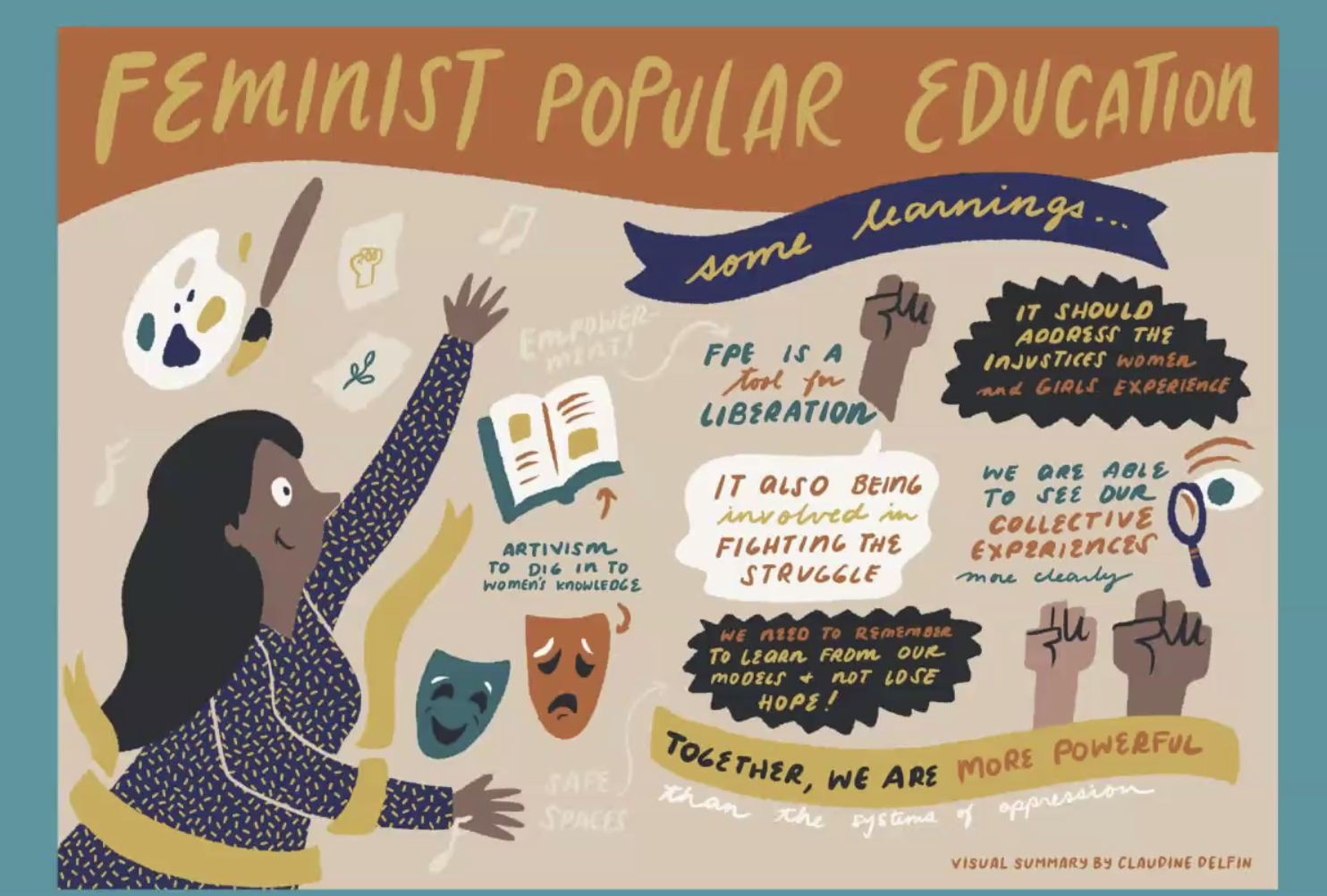

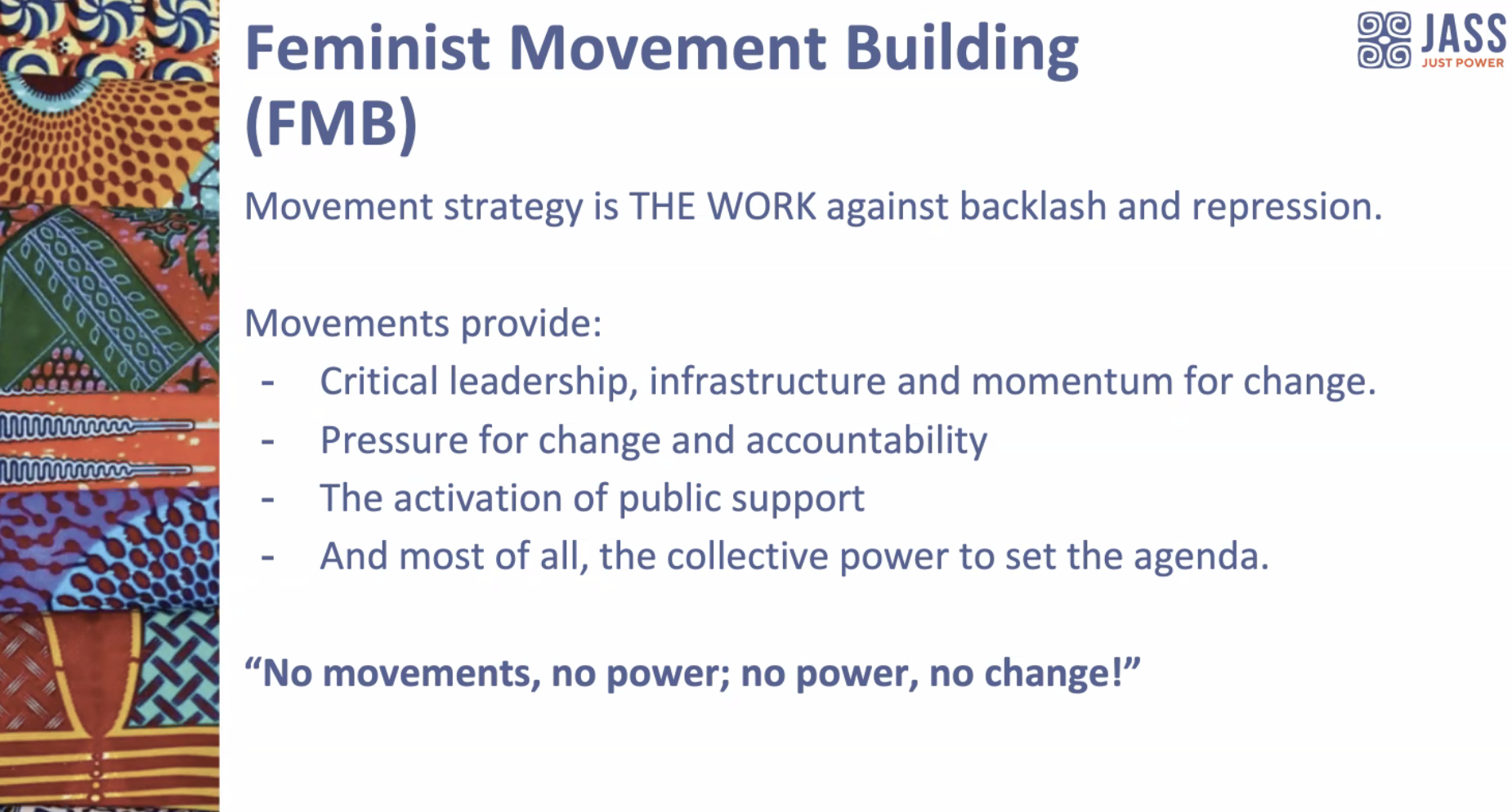
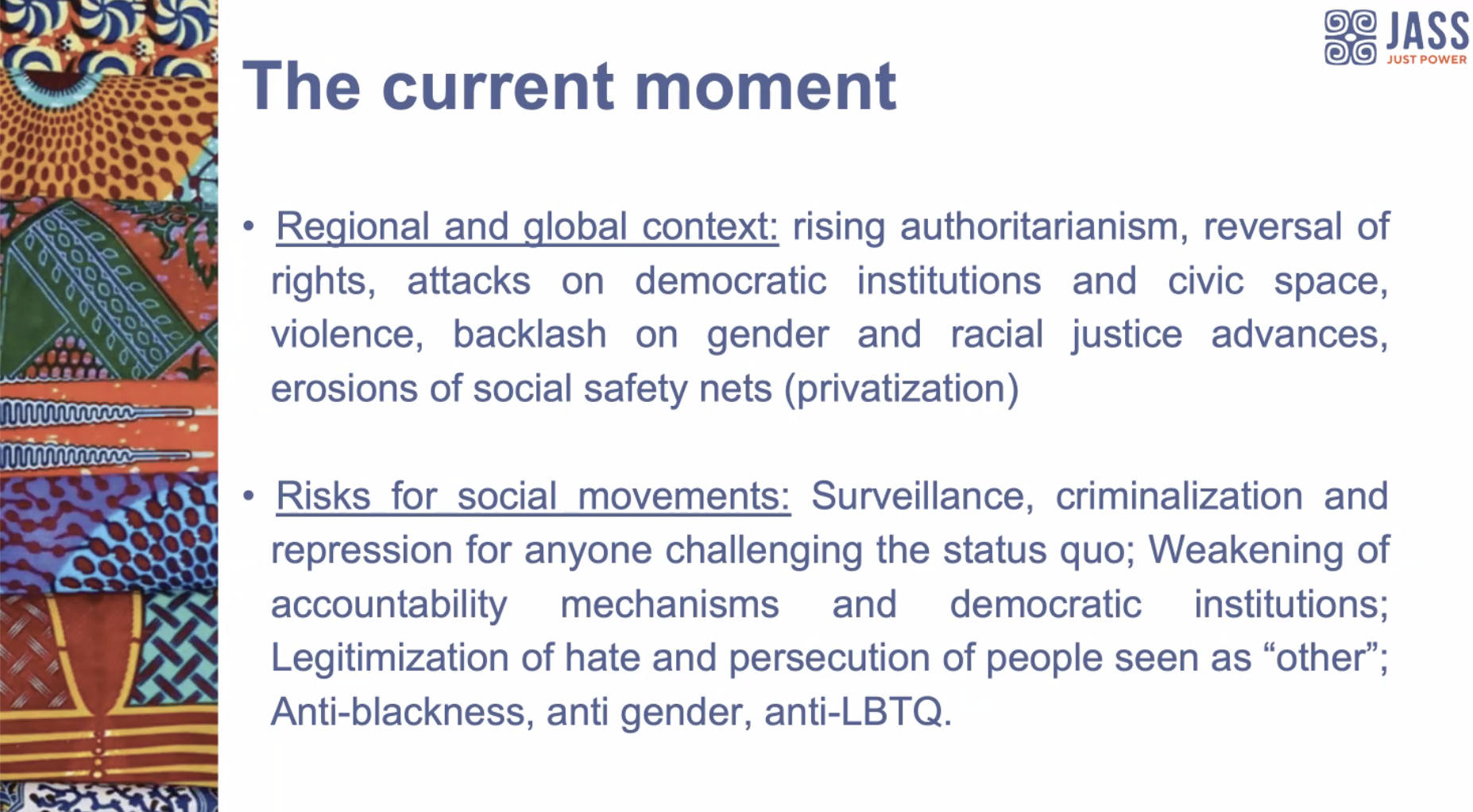
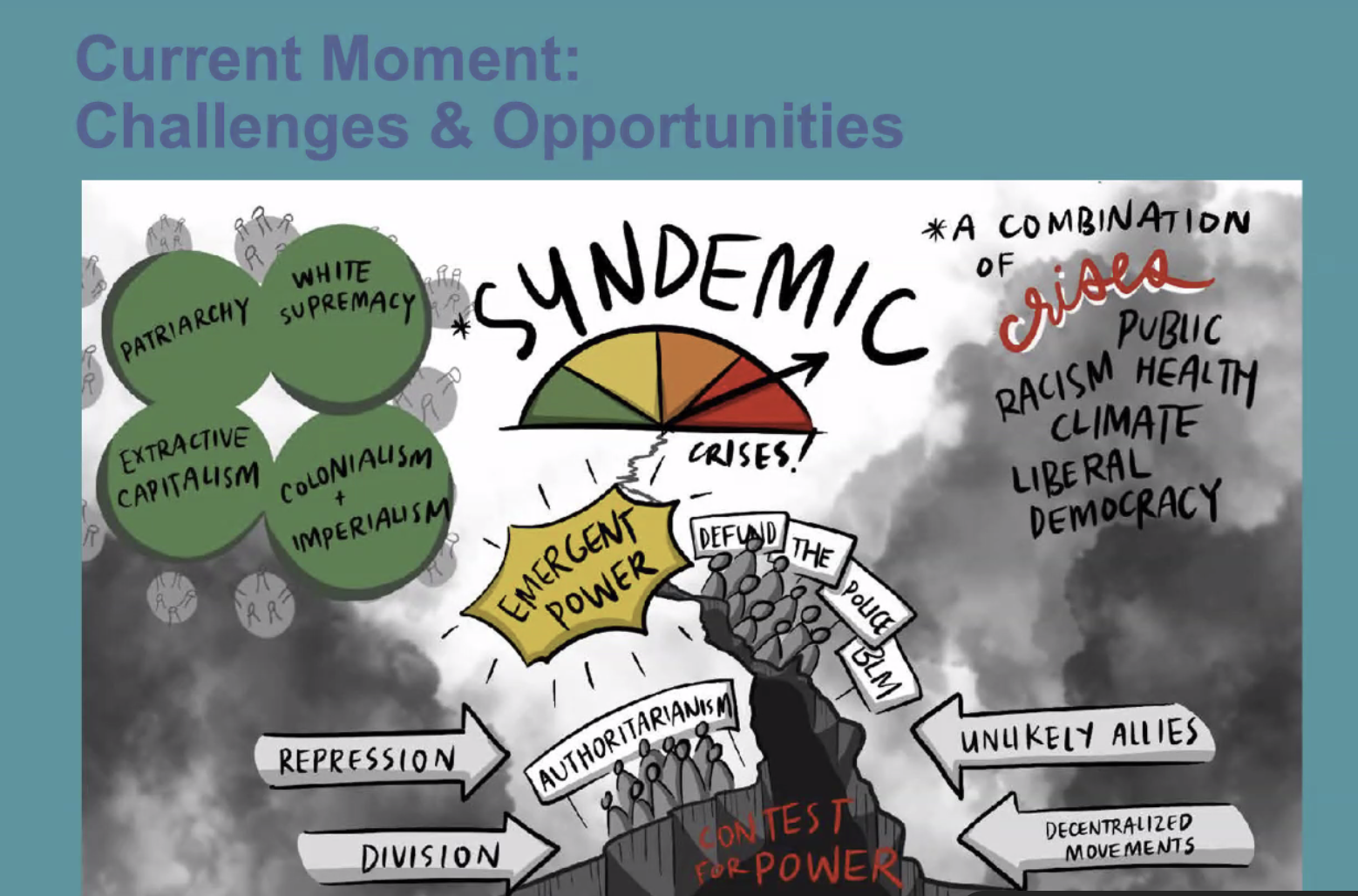
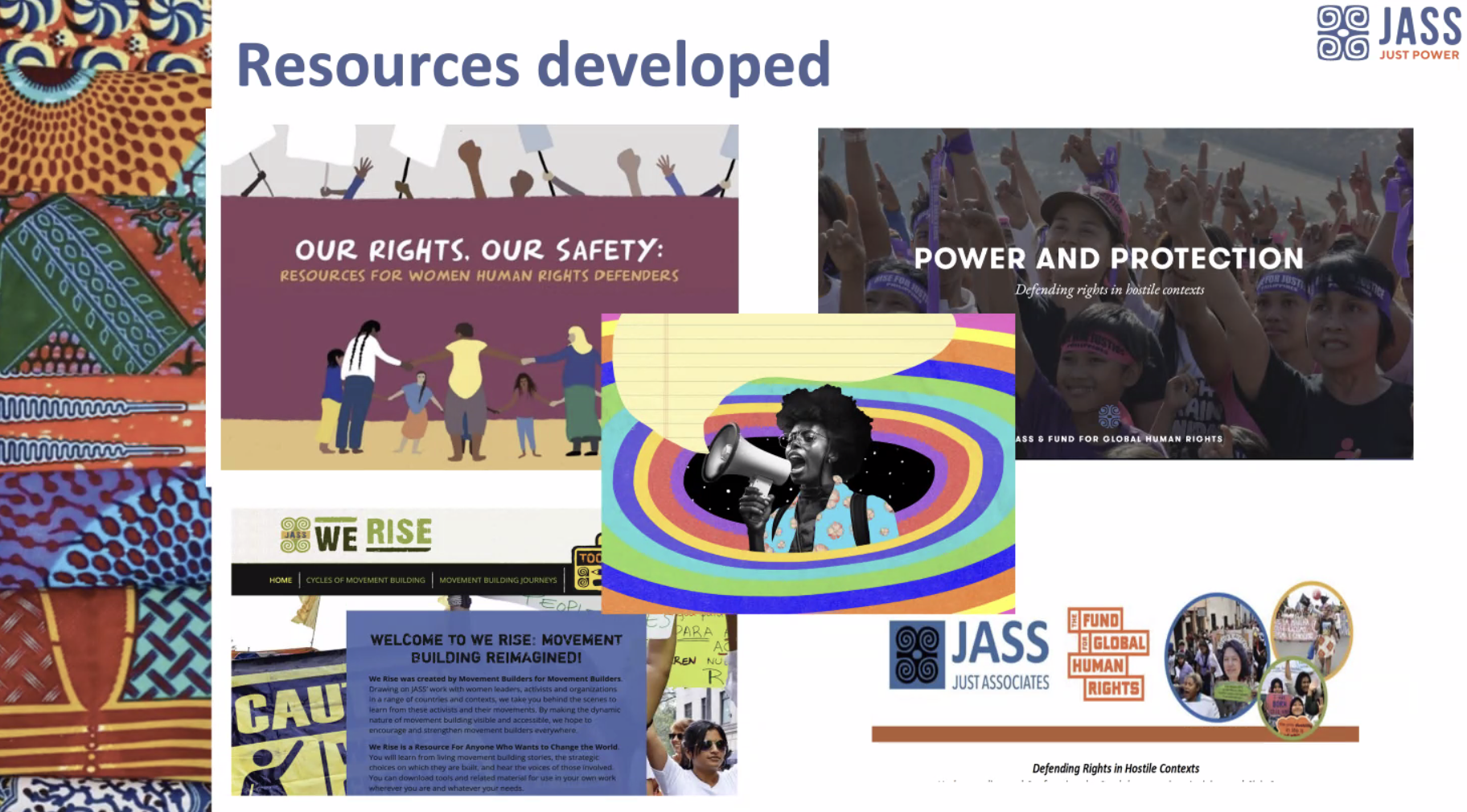
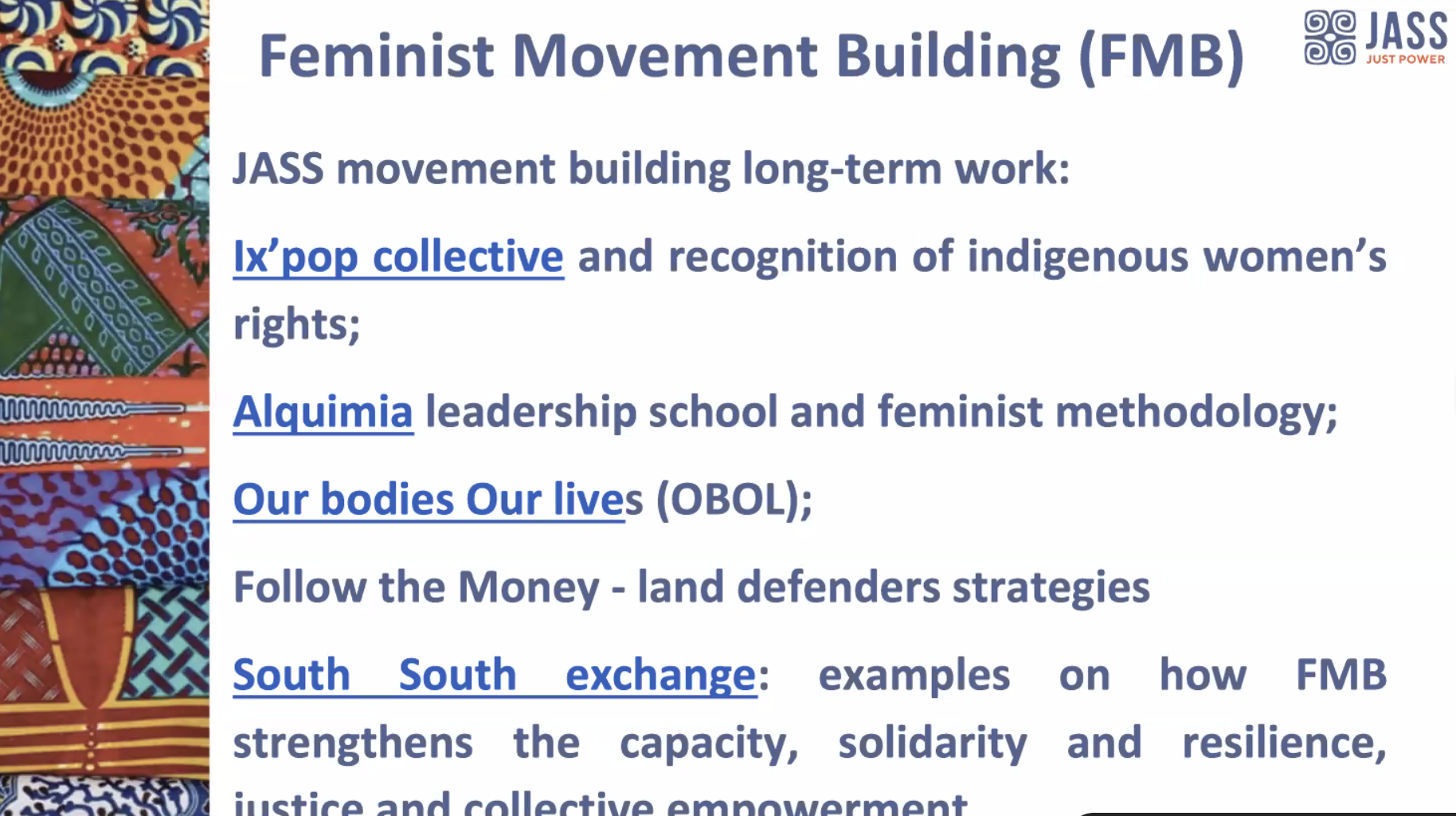
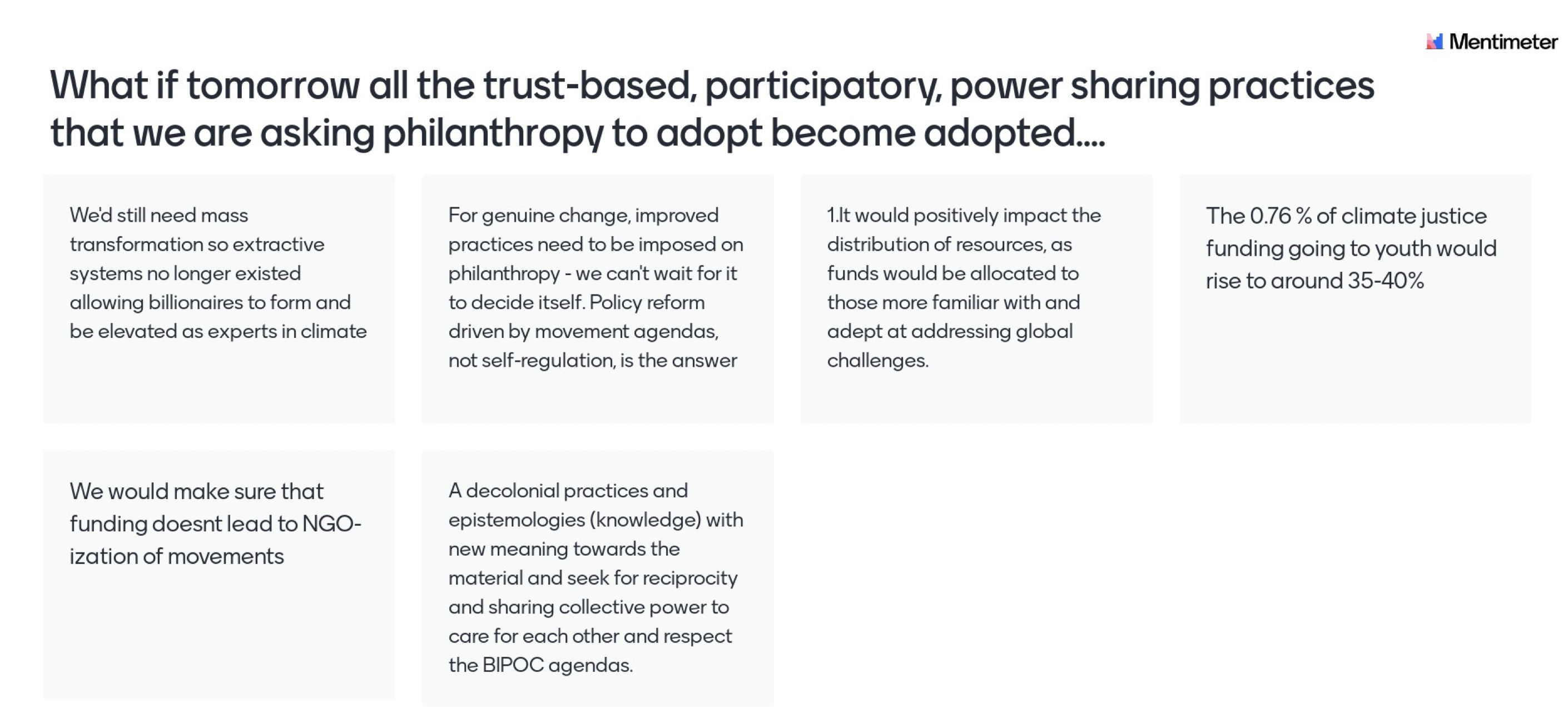
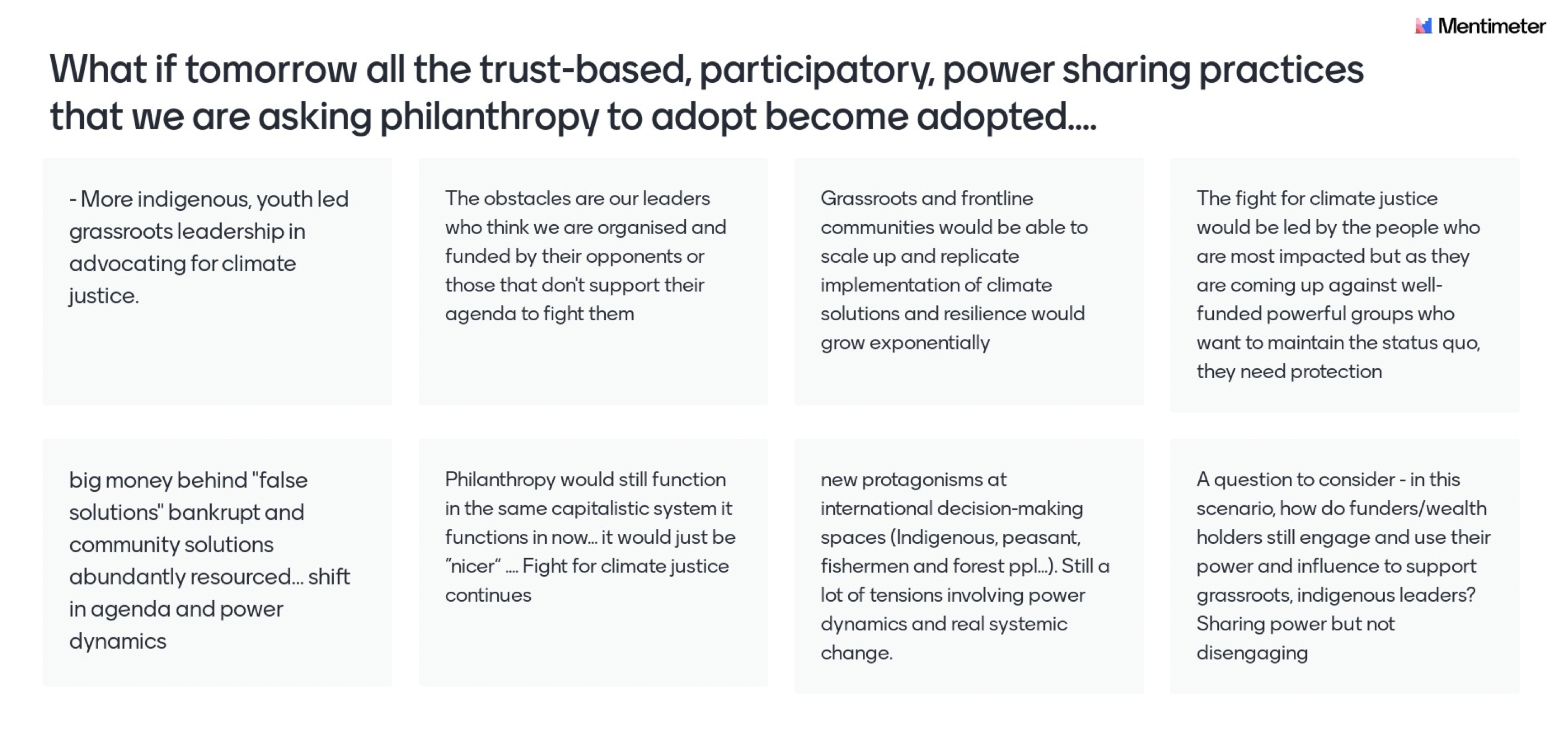

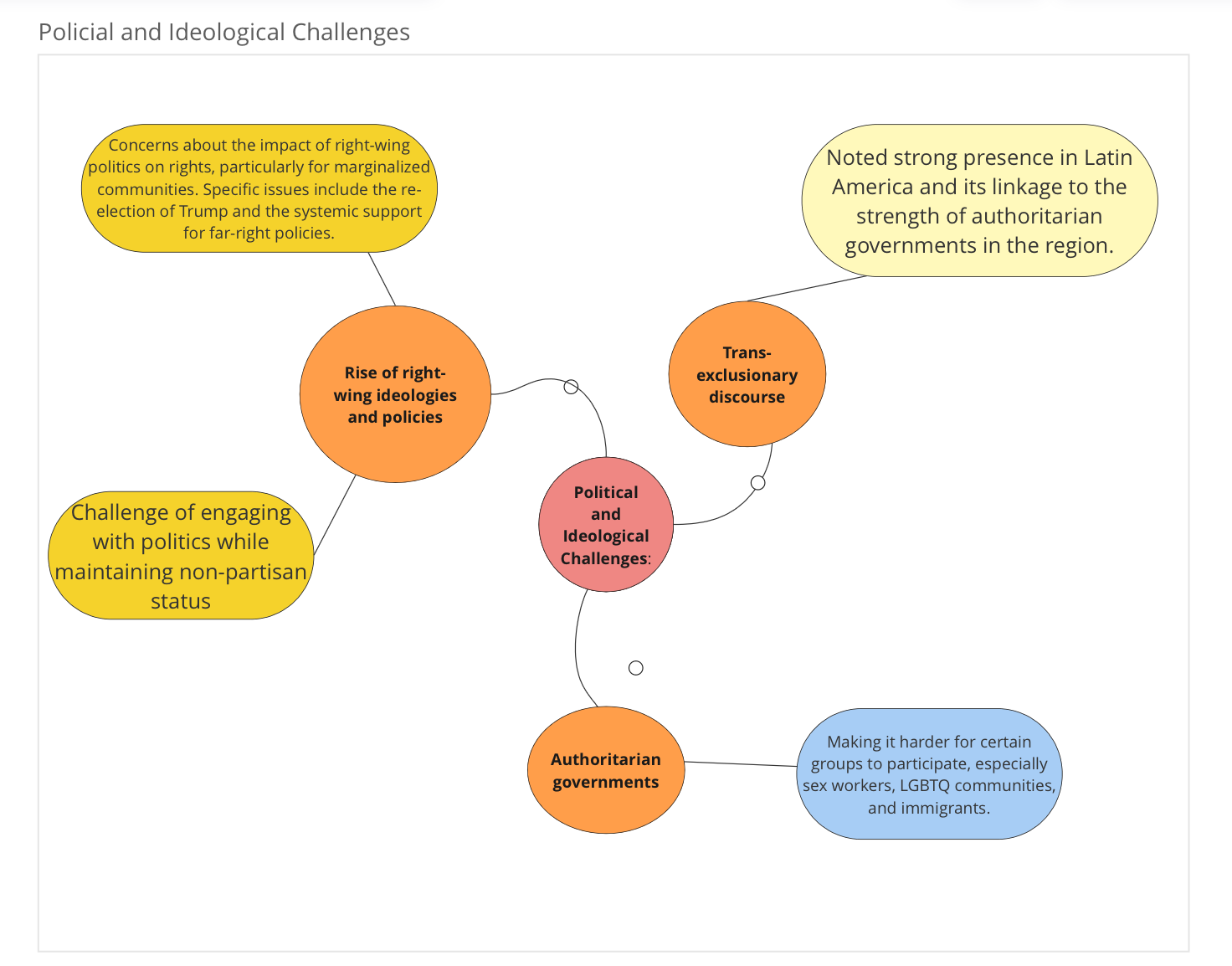
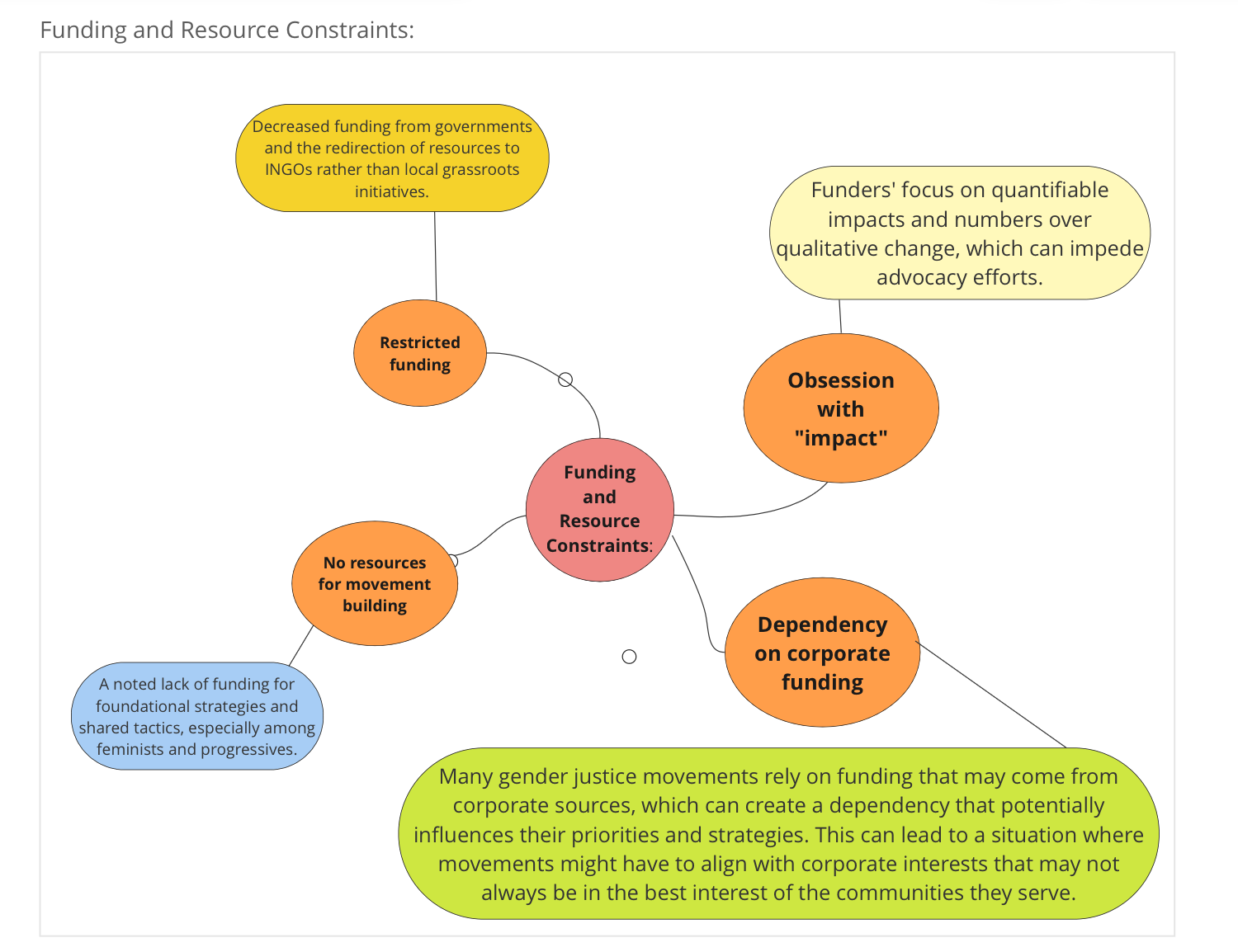
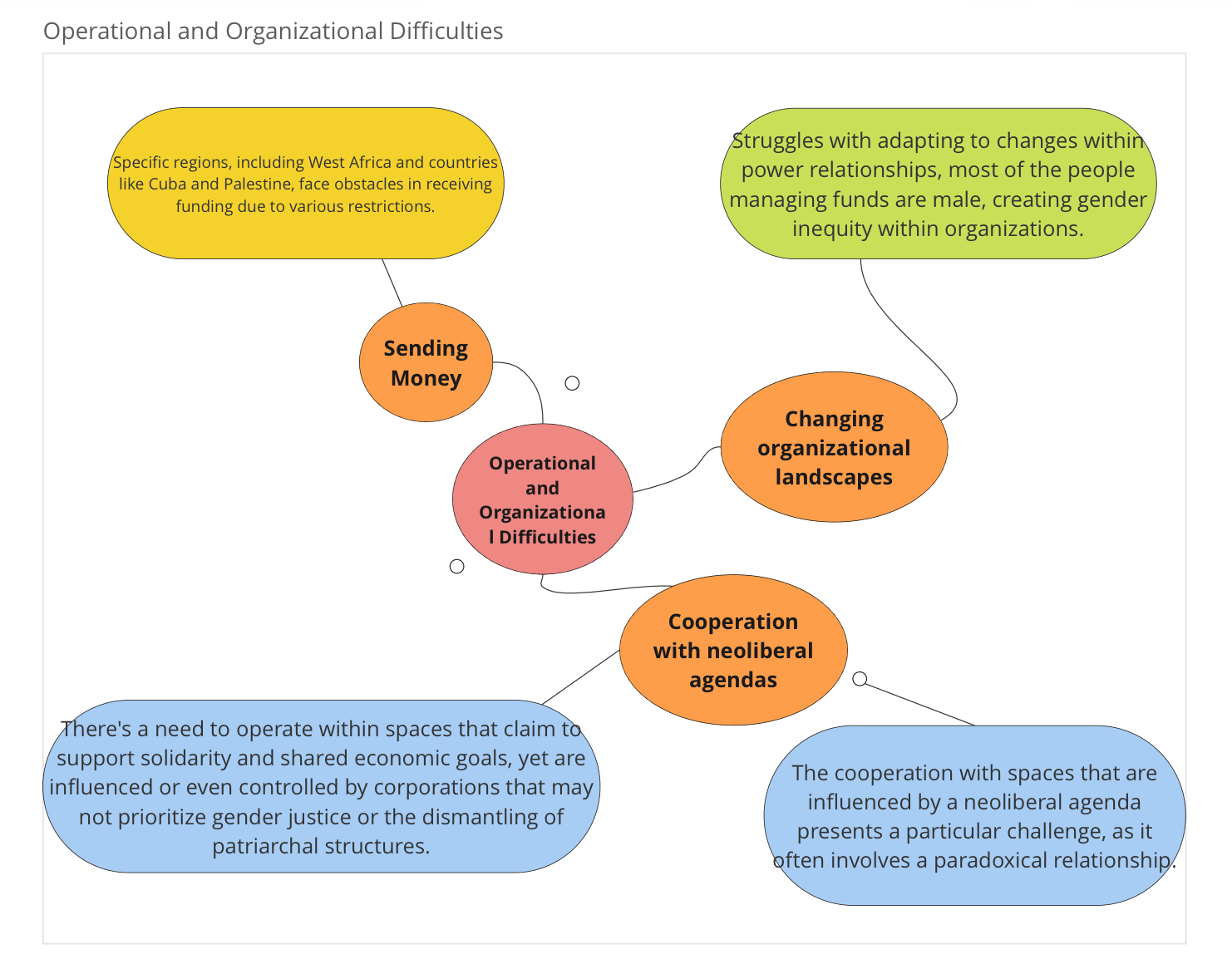
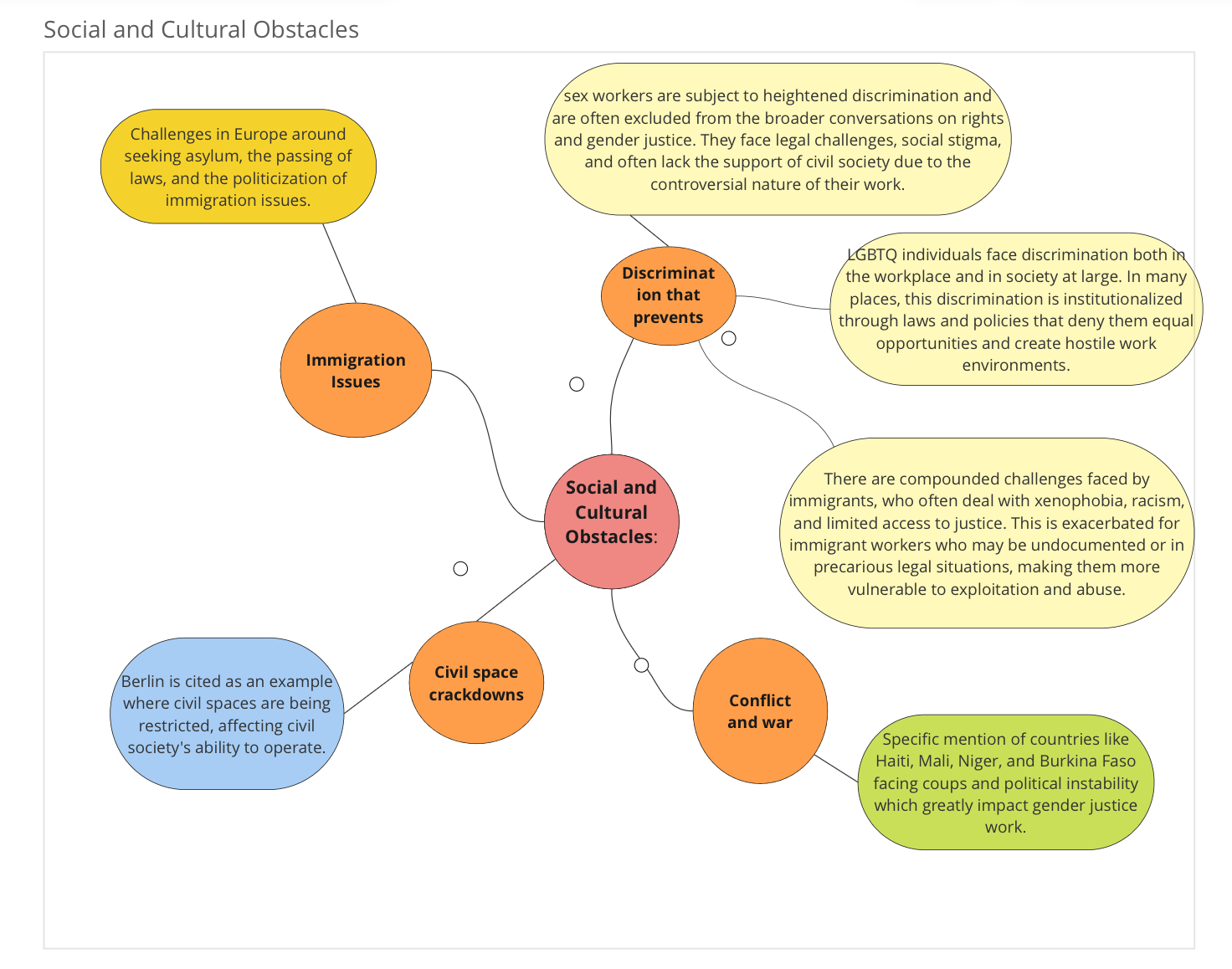
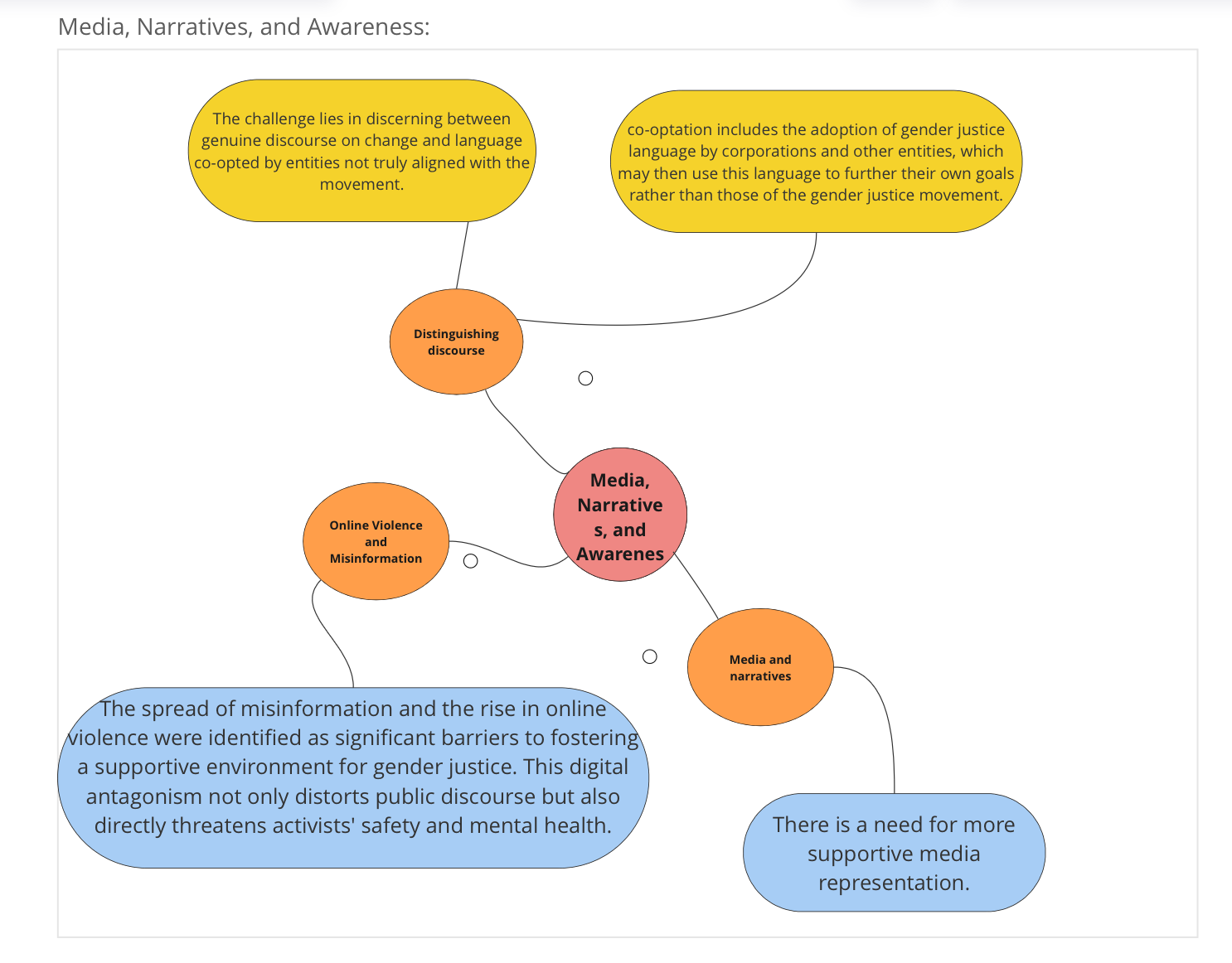
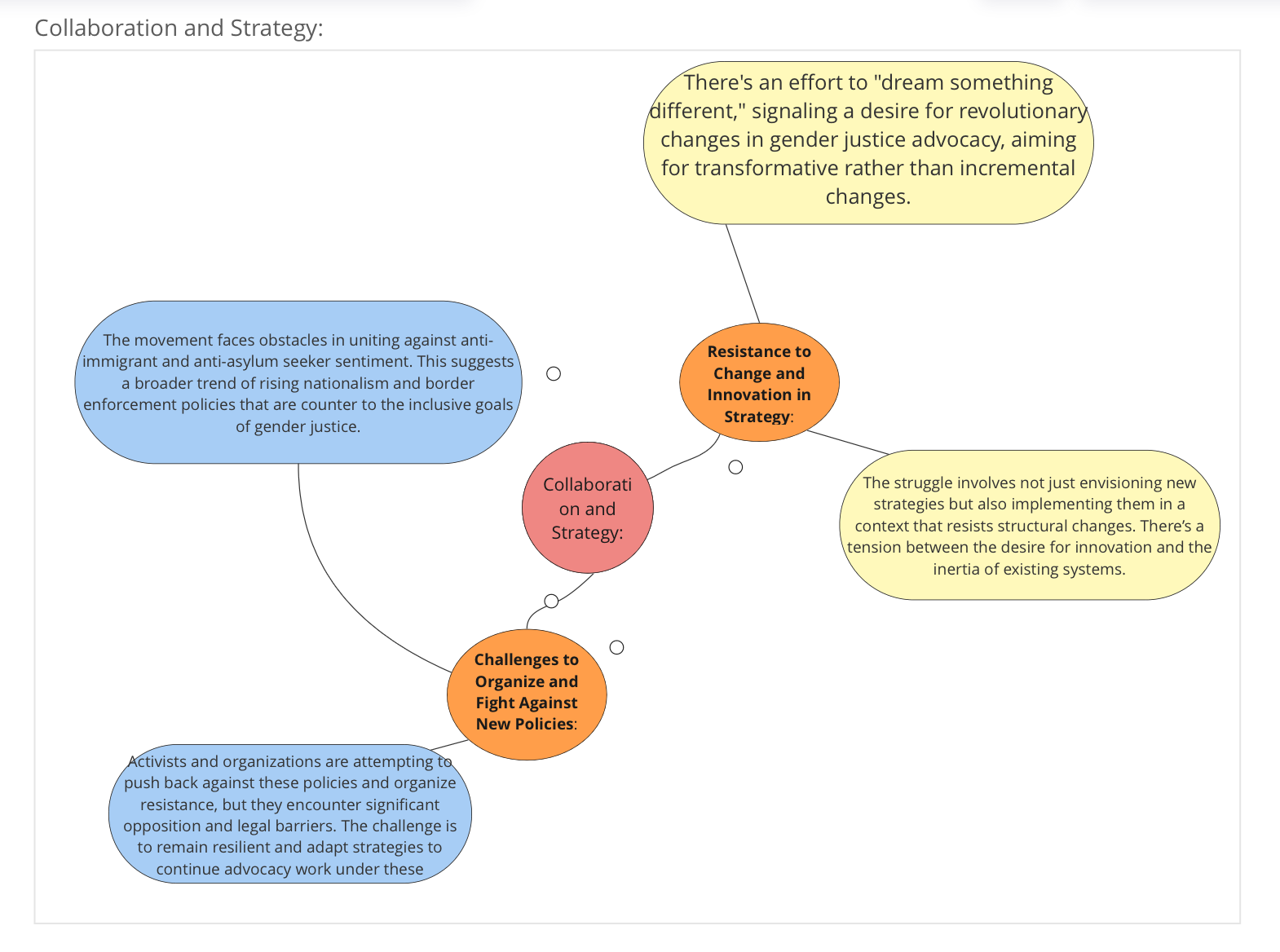
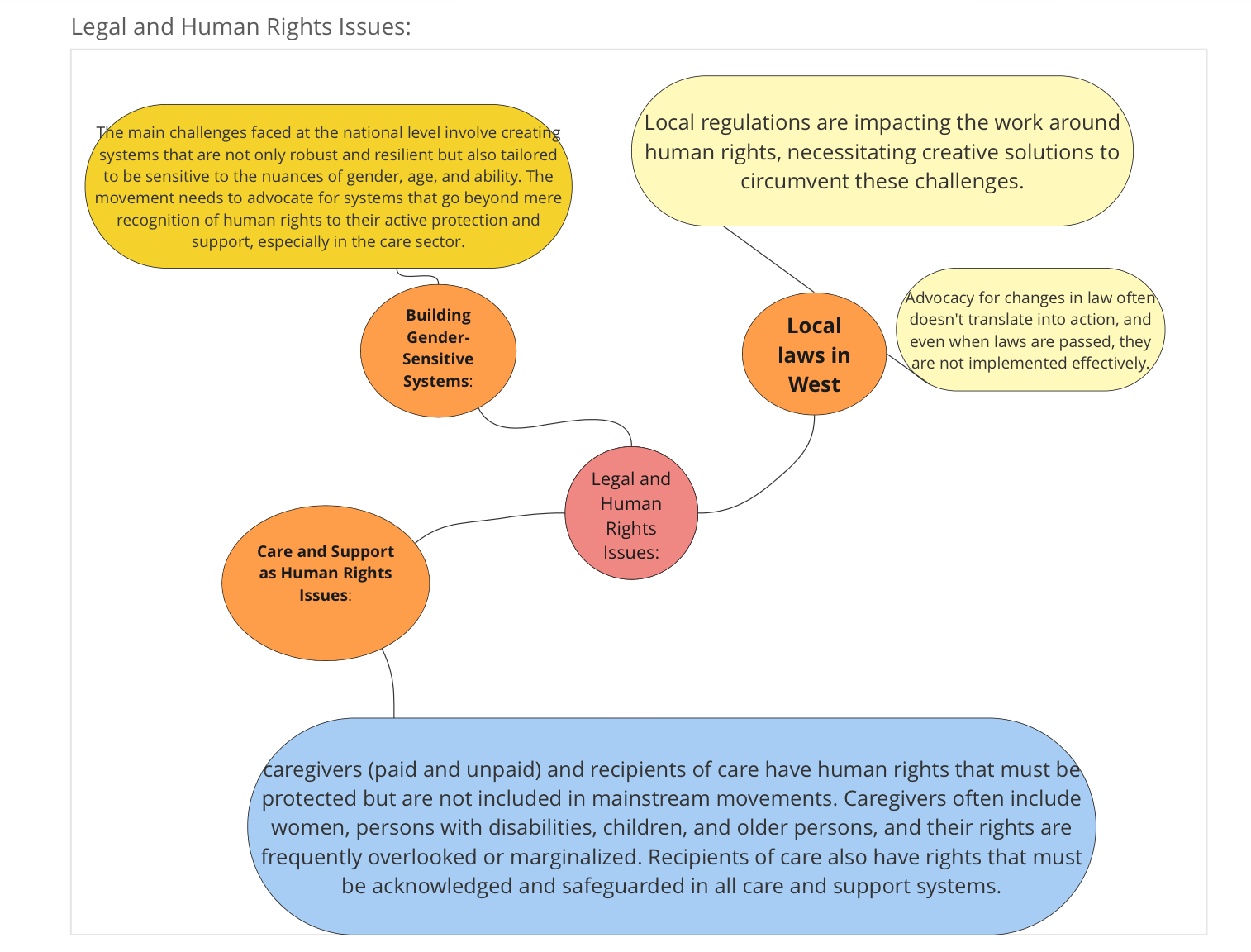
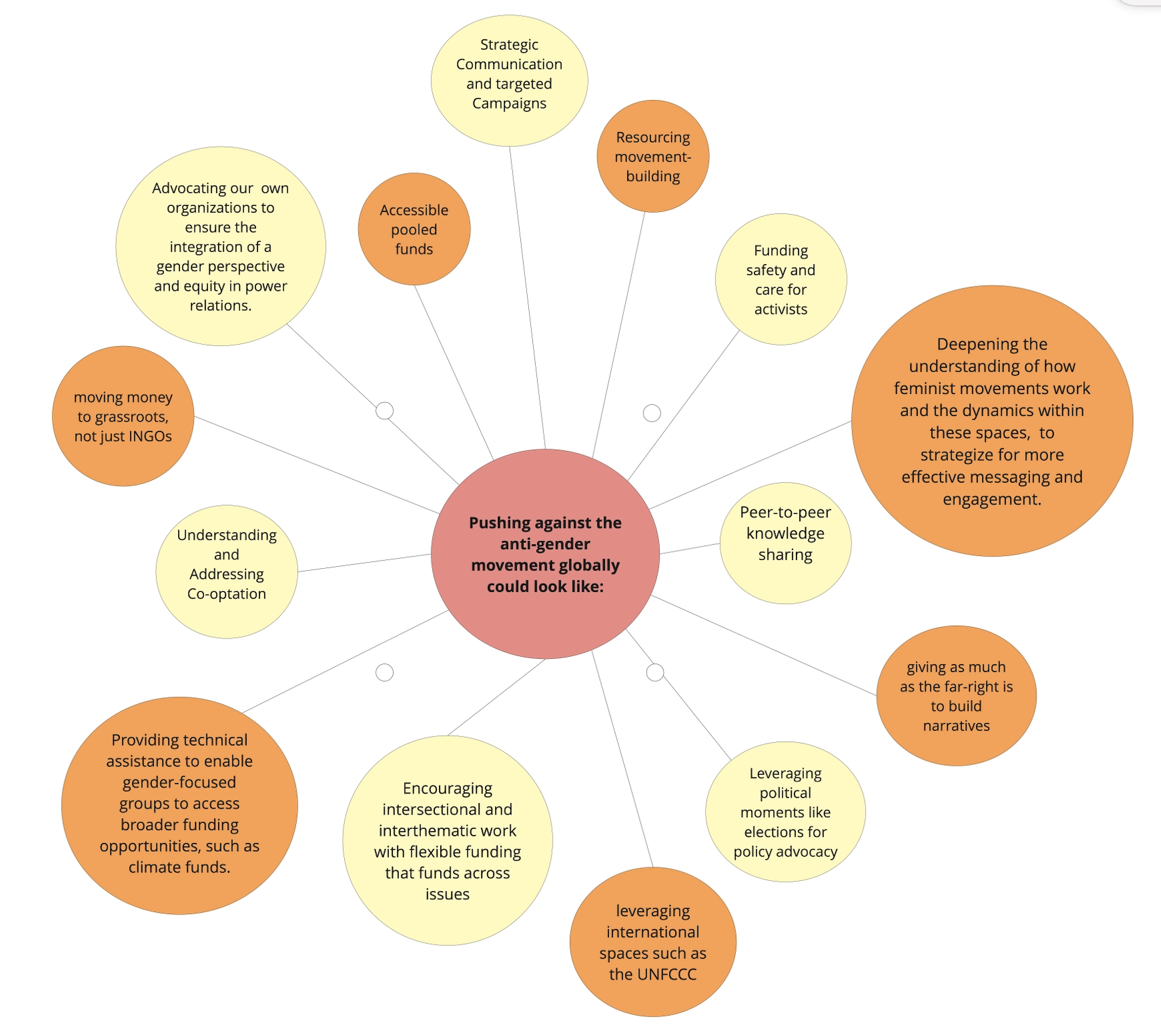

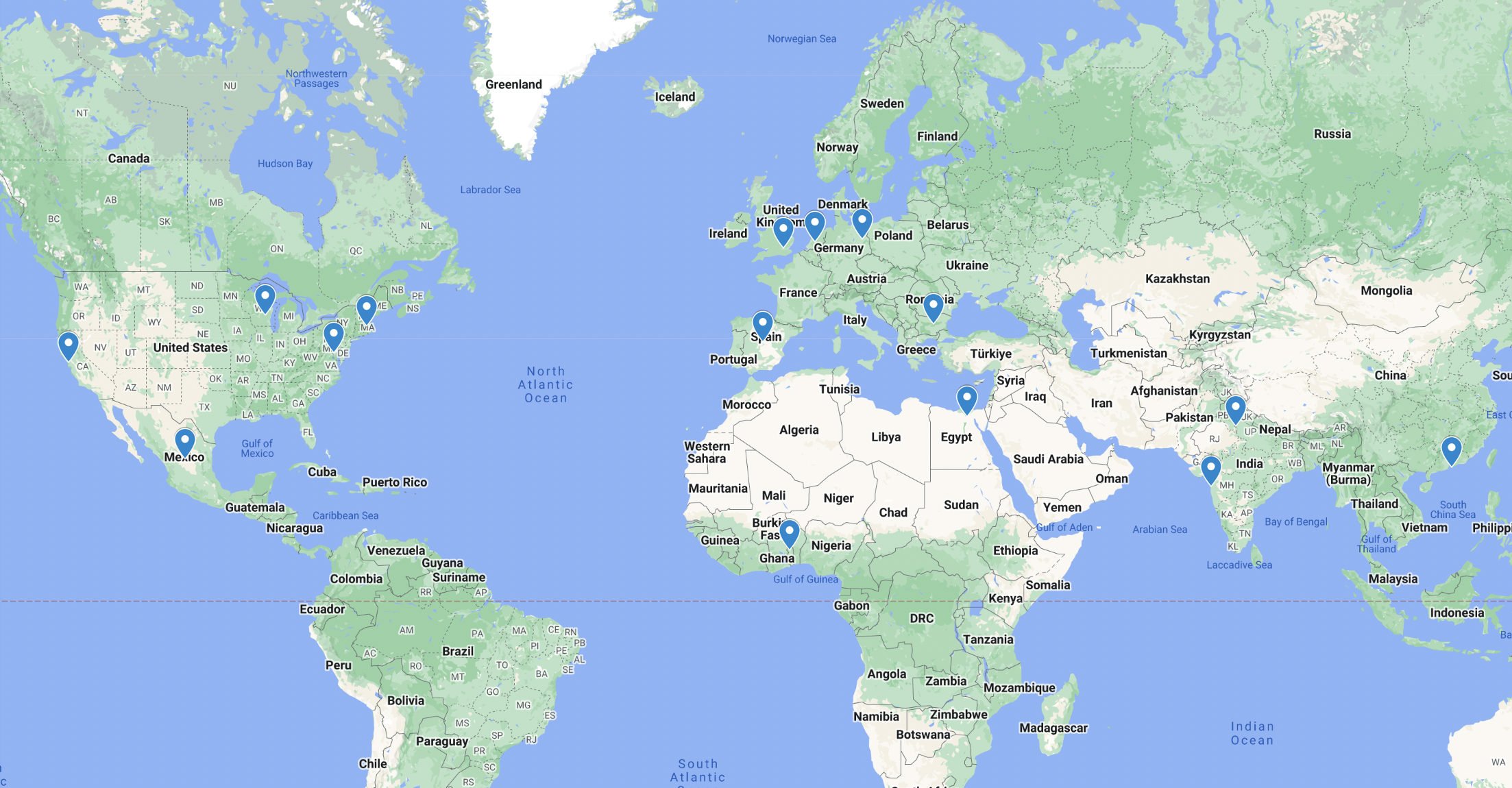





Leave a Reply
You must be logged in to post a comment.